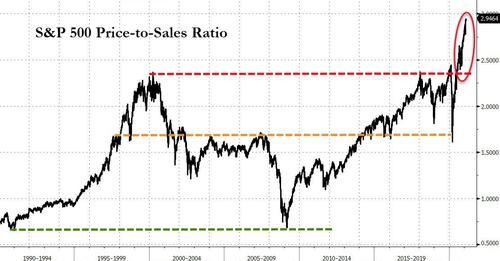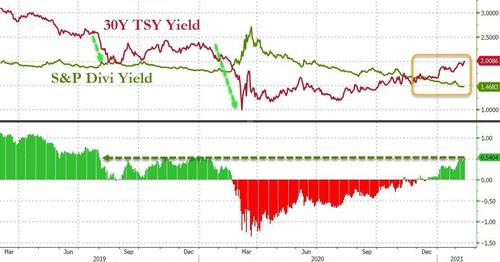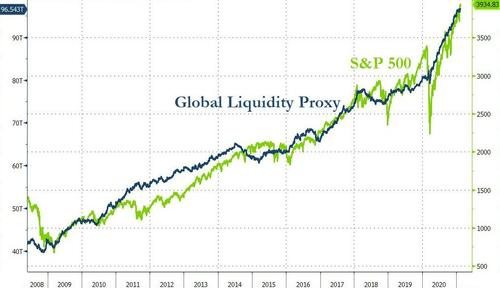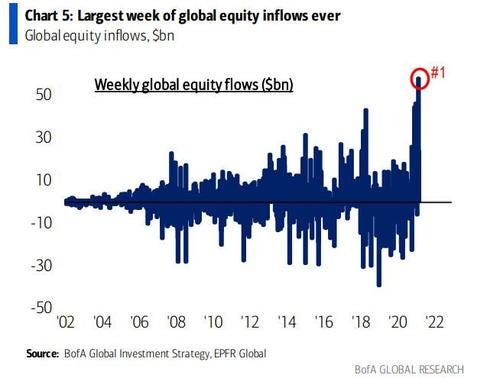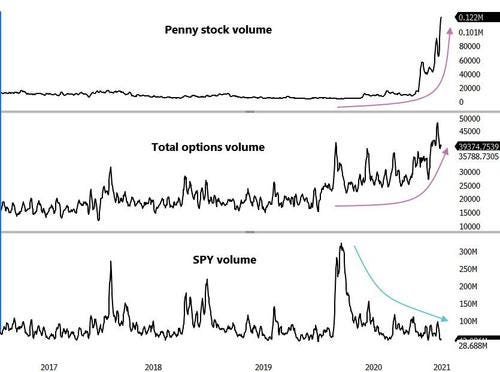Even Moron Market Mania
Couldn't resist the pun after last week's article "More on Market Mania" as it just keeps getting more ridiculous. Here for Patrons only is more on the market's maniacal climb.
Speculative Mania Goes “Up In Smokeâ€
This past week was quite interesting as the “Reddit WallStreetBets†bunch turned their sites away from Gamestop to “Cannabis.â€
I guess after lots of gaming of the market comes lots of toking as the gamers relax and, so, new kinds of highs:
Perhaps there is an actual economic fundamental beneath this surge -- a growing micro economy. Maybe investors believe the old-time Democrat hippies that just came into power throughout the federal government smoke more pot. Given the stock market's erratic behavior, one cannot resist this drug-induced perspective on the market's new highs.
This time, however, it was a quickly fading high. The trade ended quickly as though the Reddit crowd learned to dodge back out of such speculative games before becoming the last one out and taking the full fall:
How far outside of normal deviation ranges have these speculators chased stocks:
More than two standard deviations and rising. As you can plainly see, that kind of run-up hasn't happened in, at least, the last two decades (as far back as the chart runs). What can go wrong?
Remember the Buffet Indicator, which Warren uses to determine how rich the overall market is priced relative to the real economy? I pointed out not long ago how it had exceeded all previous extremes (the second notch back on the graph below), but now it is higher still:
That's not the only mountain the stock market has climbed that makes the dot-com era look like a false summit:
How can the Fed even stop the inflation monster if it comes?
Now ask yourself what happens if inflation rises.
Yields on the 10-year treasury bond have been rising for six months in anticipation of inflation from all the Fed's money printing. The 10-yr has only risen this quickly four times in the past decade. If it breaks much above 2%, it may start siphoning money out of the stock market as yields start to become more competitive. Right now, a big part of the fuel for the market mania has been TINA -- There Is No Alternative -- but is there really no longer any alternative?
So, what happens now that the alternative is slowly rising?
Therein lies the market's Achilles heal: How will the Fed curb inflation (and inflation expectations that are forcing interest on government debt up) if inflation actually does start to rise? The Fed's traditional tool is to raise interest rates. For the first time in history it cannot do that because more businesses and individuals and the housing market and the federal government are dependent on the Fed's long-running bottom-feeding interest than ever before.
With yields on government debt having started to rise late last year, yields risk bringing the stock market down by providing an alternative. (What no longer goes up, goes down.) Does anyone see a rock on the left and a hard place forming on the right?
It won't take much of a rise in interest rates to create widespread bankruptcy, falling stocks, and huge problems with the unwieldy and rapidly expanding federal debt. Yet, rising they are in anticipation of inflation and inflation is starting to show signs of life. What happens now that much of the Fed's new money is going directly into consumer bank accounts if consumers start to spend those savings when the threat of COVID starts to wane and the economy reopens? In the past, the Fed's new money did not create inflation because it remained in financial assets, and expanded money supply only creates inflation where the new money goes. Now it is going straight into consumer bank accounts.
If the Fed tries a different approach to curbing inflation when it starts to rise, such as draining money back out of the economy, how does that eliminate its bind? Wouldn't taking money out of the economy cause the price of money (interest) to rise by making money scarce? And we know what it would do to stocks because we know the stock market is entirely dependent on central banks inflating money supply. We know the relationship well, but this picture sums it up nicely:
So, how will the Fed stop inflation if it finally starts to rise above the level the Fed wants now that it has created a global economy and marketplace that is totally dependent on low interest rates? Even the threat of inflation is causing bond yields to rise, and rising bond yields cause stock values to fall by competing for investor money.
With an economy pushing $85 trillion in debt, the entire premise of the “consumption function,†as well as “valuation justification†for the stock market, is based on low-interest rates. However, that is rapidly ending as the rise in rates is now approaching a “danger zone†for the markets.... Interest rates are rapidly approaching the 1.5% to 2.0% barrier, where higher payments will collide with disposable income. Historically, such has not ended well for markets.... While investors may be able to justify higher inflation or rates in the short-term, it is unlikely they can justify both. As inflation and rates slow economic growth due to the absorption of disposable income via higher prices and interest payments, the market will begin to reprice risk quickly. Such could be a problem sooner than many think.
We will see a whole different kind of capital riots if the bond vigilantes take over. For now, however, the money is flowing into stocks like never before:
But where is the money going? Steeply down the quality vector to the bottom-feeding stocks -- penny stocks.
The retail money has shifted to trying to push up speculative bets on cheap stocks by trying to blast out those who are shorting failing companies. What happens when that fun little cat-and-rat game of playing with the rats before you eat them is over? That ...
... may explain the continued jitteryness of the market and the persistently high vix which, as Nomura noted yesterday, has been acting as if something is "broken."
Yathink? With the market's big action now resting mostly on the speculative game playing of new-money retail anti-shorters trying to create short squeezes on failing company stocks to take down the market shorters... (See also my recent Patron Post, "Big Game Hunters Become the Game Then Outgame the New Gamers.") ...With that action being the market's new main drive, what can go wrong from there?
Meanwhile, the Fed is walking into a canyon with vertical walls, and the walls are getting closer and closer together. Rock meet hard place, and then the everything bubble pops.







